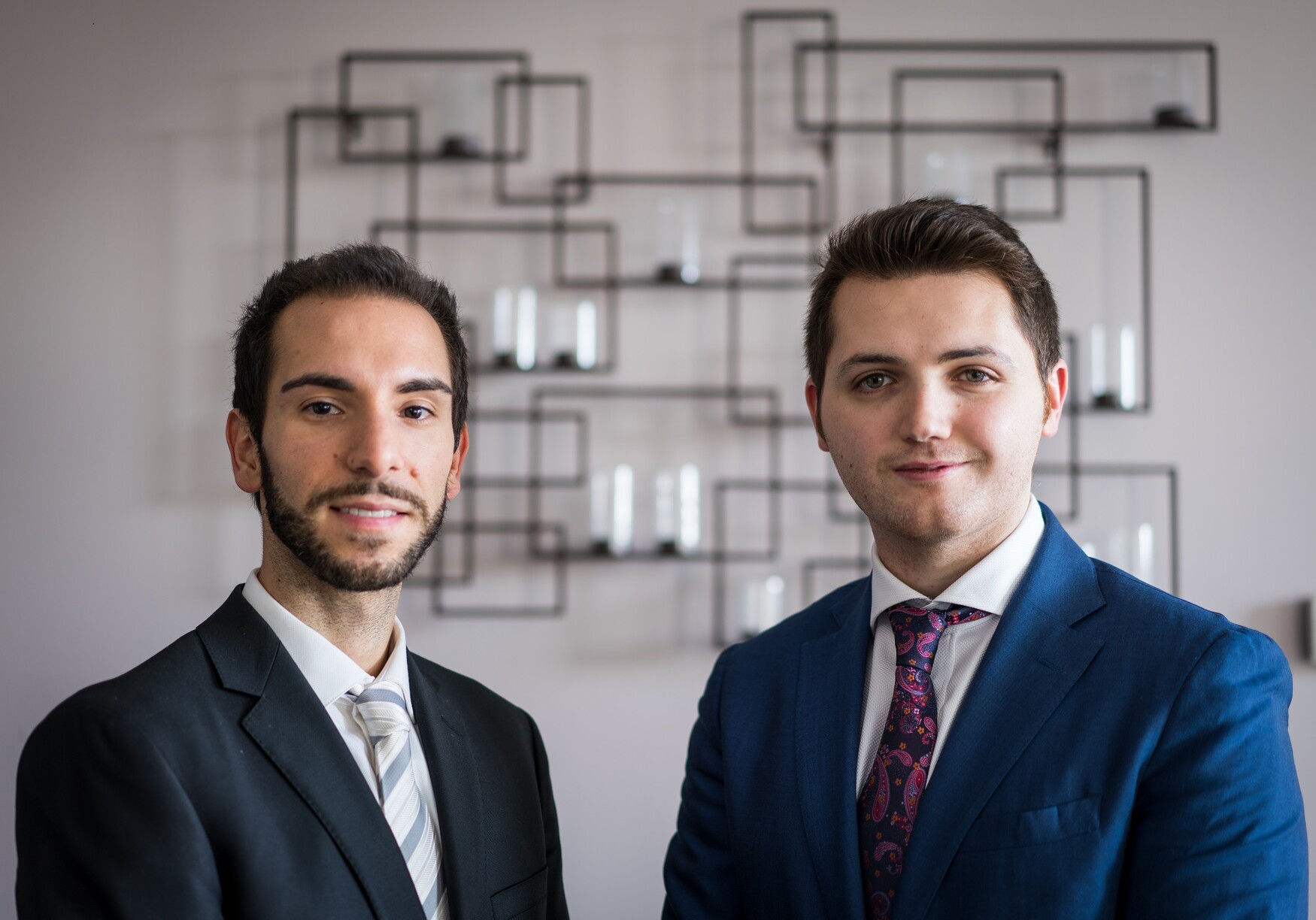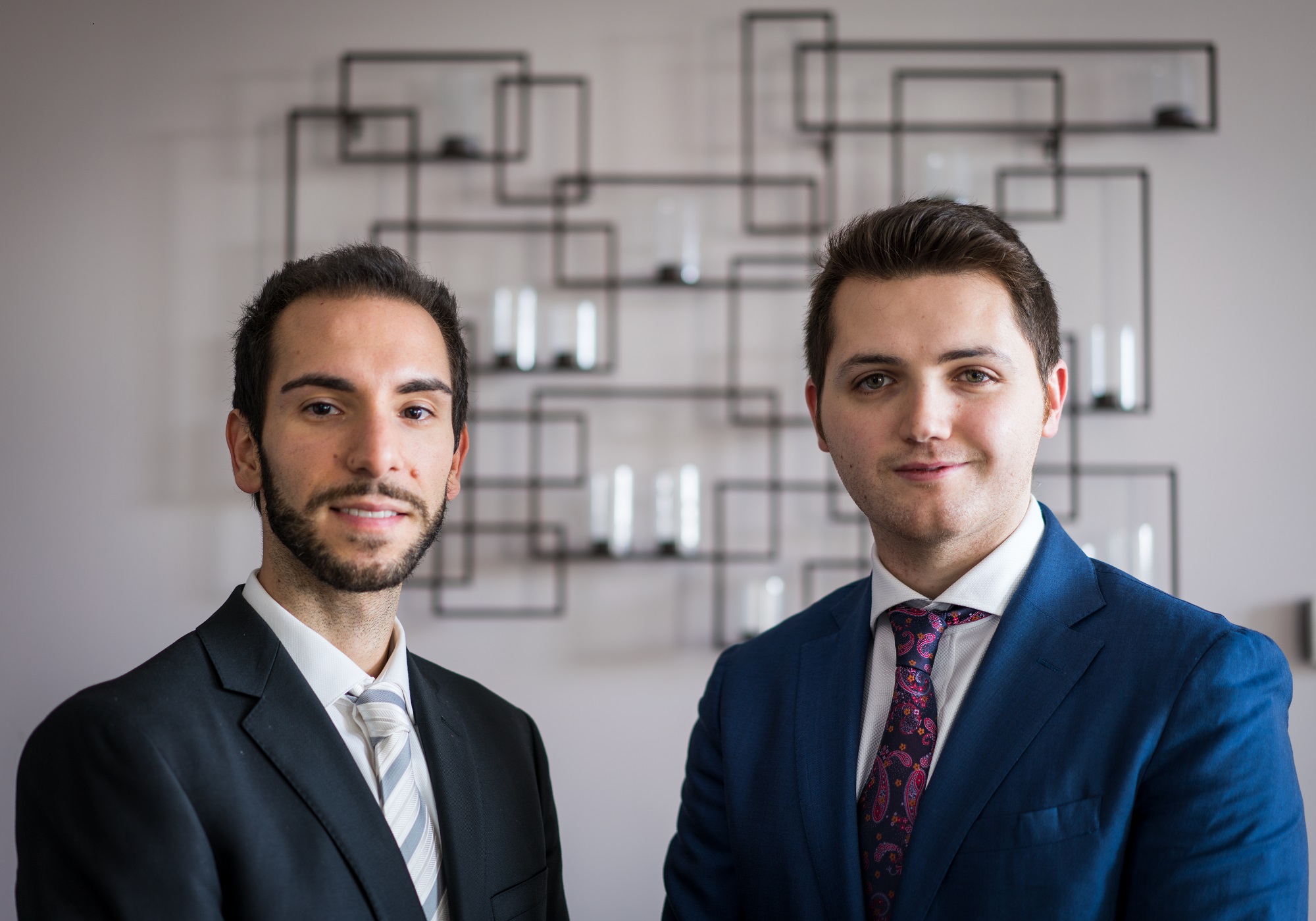Mobile Menu
- Education
- Research
-
Students
- High School Outreach
- Undergraduate & Beyond: Community of Support
- Current Students
- Faculty & Staff
- Alumni
- News & Events
- Giving
- About

Drs. Mark Cicero and Alex Bilbily
 We met in our radiology residency at U of T and bonded over our common interest in artificial intelligence and machine learning.
We met in our radiology residency at U of T and bonded over our common interest in artificial intelligence and machine learning.
At the time, many people saw AI as a threat, fearing it would make radiologists obsolete. But we were convinced otherwise.
Both of us loved computer science and engineering (Mark had an engineering degree; Alex started programming as a kid). And we knew recent advances in technology could make a huge difference to medical imaging and diagnostics.
While radiology has advanced “hardware” like MRIs and CT scanners, its “software” side is less impressive. Our external tools to help analyze images consist of a ruler to measure the size of lesions on a scan, and a little circle that helps measure the brightest pixels on the screen.
We got started researching how AI technology could improve X-ray diagnostics and bone age analysis. We won awards — including by the Faculty of Medicine’s Health Innovation Hub (H2i), and the Radiological Society of North America (RSNA) — and launched our start-up company, 16 Bit in 2016.
We just needed to access hundreds of thousands of radiology images to get up and running. That simple, right?
Not quite. It turns out that technological and medical know-how, big ideas on transforming diagnostic imaging and relationships with radiologists across the city doesn’t automatically grant you access to reams of data or guarantee partnership and buy-in.
Luckily our 2016 H2i award had come with the promise of ongoing mentorship (we’d originally been most excited about the $5,000 prize!). And we’ve relied on these mentors extensively.
For us, the technology has never been a barrier. Our biggest challenge was learning to navigate the complexities of the health system. For example, structuring agreements with academic hospitals to incentivize them to work with us, without being able to offer them the kinds of financial compensation large companies can. As the playing field is not exactly level for small companies to operate in healthcare, which can stifle early innovation, we have devoted a lot of time to navigating these and other challenges. While we expected the need to develop technology pipelines, we didn’t realize the legislative and ethical policies for AI innovations would also need to be developed.
During almost weekly meetings and check-ins with lead mentor and technology commercialization leader Andris Lauris and H2i co-director Prof. Paul Santerre, we not only got practical advice on business planning and strategy and much-needed moral support — we also learned the particularities of health care entrepreneurship.
We’ve gotten advice around collaborating on research studies and clinical trials in AI and radiology, and guidance on applying for regulatory approval and more.
Currently, we’re working to get regulatory approval for our bone age algorithm to make it the global gold standard — which will ultimately save time for busy radiologists and bring sub-specialty expertise to developing nations. Additionally, we are working to rethink imaging-based screening paradigms such as for breast cancer and osteoporosis.
Ultimately, we hope to move beyond saving time and money, to create the next-generation of health care tools that can work synergistically with radiologists and other physicians and improve the quality of care they’re able to offer patients.
For example, in medical imaging pixels are encoded in 16 bits – hence our company name – which includes many more shades than the human eye is likely to appreciate. If we can map clinical outcomes to this rich and layered data, we could create connections and insights that we wouldn’t otherwise have access to.
There is a lot of excitement around AI in medicine, especially within Toronto’s growing AI and entrepreneurship ecosystem. But there is also a lot of fear, often putting physicians and AI at odds with each other.
Having created world-class medical AI algorithms and also done 20 years of medical training combined, we view AI as a wonderful new tool to further the contributions physicians are able to make to their patients — as opposed to a technology that will cause the mass extinction of the human doctor.
Drs. Mark Cicero, PGME ’13 (Radiology), PGME ‘18 and Alex Bilbily, MD ’13, are radiologists and co-founders of 16 Bit, a Toronto-based diagnostic imaging company.
Supporting Health Care Entrepreneurship at U of T
Learn how to support campus-linked accelerators including U of T’s flagship health-care-focused trainee incubator the Health Innovation Hub (H2i). With matching opportunities available for donations to H2i through U of T’s True Blue Fund, you can play a critical role in helping support and educate entrepreneurs and accelerate the translation of discoveries and ideas into products and services that improve lives and make health care more efficient.
For more information, please contact Senior Development Officer Katie R. Rock at katie.rock@utoronto.ca.

